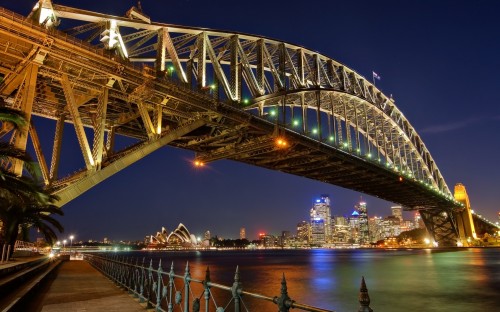A group of business schools are attempting to ramp up their decades-old programs by moving beyond the idea of an Asia-Pacific focus. Instead, they are competing with the world’s MBAs by creating more international engagement, foreign exchange programs and diversity scholarships.
In the course of doing so, they are helping Australia to become one of the world’s MBA hotspots.
According to QS, a website that ranks study locations based on applicant surveys, Australia is now the fourth most popular MBA destination and has increased its market share from 20% to 25% of all applicants over four years.
Jason Widjaja had a management position at GuocoLand Limited, a listed real estate firm in Singapore. But, like many of Australia’s MBA students, he chose Melbourne to make a career leap.
“While there may be some disagreement on the margins, I’ve found the Melbourne-experience to be fantastic,” said Jason. “The local working culture was a welcome contrast from the way I experienced management back home… And the quality of the faculty is on a par with the top schools in the world.”
One reason for the country’s growth is that more of its schools are rolling out MBA programs. The business school of the University Of Western Australia will launch a new MBA in 2015, with further gains made in its Flexible program designed for senior managers who have the option of flying-in on a part-time basis.
Neighbours’ India and China are home to more ranked business schools, but Chris Styles, Dean of the Australian School of Business, said that the school is lifting its international engagement.
“Being an international business school is very important. Diversity in the classroom mirrors the real world and... The whole university benefits from having a strong international as well as domestic focus,” said Chris.
Among the most successful Aussie institutions is ASB. It has built an alumni network of 70,000 graduates, from the US to China, who have used its programs to further their fledgling business careers.
Its Graduate School of Management MBA, which costs about $71,000, is the highest-ranked program in Australia.
The course, taught on a campus a stone’s throw away from Sydney’s business district, gained an early endorsement with accreditation from EQUIS.
The graduate management school runs an executive version of its MBA, as well as an MBA in Hong Kong that is designed for practising managers in the region.
Another high-flyer is Melbourne Business School, which launched its first MBA classes four decades ago and whose courses count senior managers at Louis Vuitton, the fashion brand, and food producer General Mills as students.
Its MBA, which costs about $74,000, has risen more than 20 places in the MBA rankings over two years. Its impressive alumni roster means its MBA was ranked first last year by Asia-Pacific employers, according to QS.
The part-time MBA is spread over two years, double the length of the full-time option, while the executive MBA is run over 18 months but over Thursday to Sunday extended weekends.
Another option is the senior executive MBA, aimed at people with 10 years’ management experience, who are typically in their 40’s.
Significantly, both business schools have an international flavour to their operations and their students. ASB’s MBA cohort is approximately 80% international, while similarly more than 80% of Melbourne’s class is from overseas.
Business is global, which is probably why Australia, with its more appealing visa laws, is proving fertile breeding ground for international MBAs.
Chris, ASB Dean, said the school is already arguably the best in Australia. But the further you go internationally, he added, the more work needs to be done.
“Looking at Australia as a location, I think we need to lift our profile even further.”
RECAPTHA :
5b
b0
cb
73








